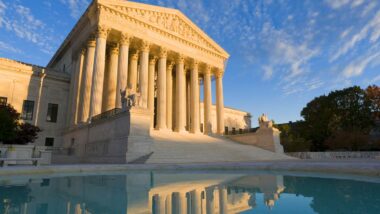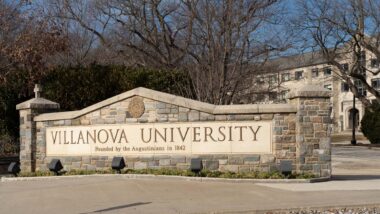Top Class Actions’s website and social media posts use affiliate links. If you make a purchase using such links, we may receive a commission, but it will not result in any additional charges to you. Please review our Affiliate Link Disclosure for more information.

Update:
- Students settled a legal action seeking a full refund of their Harvard tuition after COVID prompted the transition to remote classes, according to court filings.
- In a one-page document filed Jan. 9 in a Massachusetts federal court, the students’ lawyers say the matter “has been resolved” and that a voluntary dismissal of the case is forthcoming.
- Details of the settlement were not immediately available.
- The settlement comes after at least three students filed lawsuits against the university in 2020 to refund their Harvard tuition, claiming the move to online learning constituted, among other things, a breach of contract.
- In 2021, a judge dismissed the claims, saying Harvard’s promotional materials did not amount to a binding contract but gave students time to file an amended complaint.
- The case is one of a number around the country in which students sought compensation after they paid full fees for college and instead received an online experience during the pandemic.
(Oct. 9, 2020)
Legal action from students seeking a full refund of their Harvard tuition after a coronavirus-prompted transition to remote classes should be dismissed, according to a motion filed in the class action lawsuit.
The motion is the latest filing in a class action lawsuit by students to get their Harvard tuition reimbursed that initially began with at least three different lawsuits in May.
Three students filed lawsuits against the university to get their Harvard tuition refunded earlier this year, claiming the move to online learning constituted, among other things, a breach of contract.
The legal move by students to get their Harvard tuition refunded joins dozens of other coronavirus-related class action lawsuits across the country.
Plaintiff Sarah Zelasky was the first student to sue for a tuition refund when Harvard University closed its campus and switched to “virtual instruction” on May 23.
Harvard says during this time, they gave students an option to “either continue their learning remotely or take a leave of absence and receive a partial refund of the semester’s tuition.”
In the following months, plaintiffs Abraham Barkhordar and Ella Wechsler-Matthaei filed lawsuits with similar claims, according to the motion, eventually leading to a consolidated complaint on Sept. 23.
The students argue the online format is “void of face-to-face faculty and peer interaction, separated from program resources, and barred from facilities vital to an on-campus educational experience” but Harvard says this move is well within their discretion.
While “Harvard, of course, shares Plaintiffs’ frustration,” the motion contends, the university can’t be held liable and isn’t required to refund the tuition.
“Indeed, if plaintiffs were permitted to proceed on this theory, every decision that a student believes has negatively impacted her education could be the subject of a lawsuit,” the motion further elaborated.
The motion further claims “Harvard never made a promise, contractual or otherwise, to provide an in-person education under all circumstances” and payment of Harvard tuition “is not conditioned on in person.”
“Harvard’s decision to shift to remote learning in response to the COVID-19 pandemic was well within the discretion afforded Harvard by its student handbooks and Massachusetts law to adapt curricula,” the motion stated.
Harvard explains how, after the campus was locked down, the school provided choices to students, offering prorated room and board but made clear “as long as instruction continues” and “Harvard University Health Services remains open for telehealth appointments, the University would not refund tuition or the Student Health Fee.”
Harvard further adds in the motion “plaintiffs here had, but failed to take advantage of” the option to take a leave of absence and a refund of Fall tuition.
Additionally, according to the motion, “under Massachusetts law and the relevant contractual materials, Harvard had the discretion to alter the format” and “courts across the country have held that claims against colleges and universities seeking damages for an allegedly ‘inadequate’ education are not cognizable.”
Harvard officials elaborate more in their motion, asserting “nearly every state…categorically rejects student claims challenging the adequacy of their education, whether brought on a contract or tort theory.”
The motion cites case law, specifically Cuesnongle v. Ramos. The First Circuit explained it “should startle anyone at all familiar with university life to think that a university could be found to have broken its contract when it changed the dates of classes, or the curriculum, for reasons beyond its control,” according to the motion.
The court filing further claims the students fail to “identify” any specifics regarding “the contractual promise Harvard allegedly breached.”
The “plaintiff must describe with specificity what obligations were imposed on each of the parties by the alleged contract” and “the specific contractual promise the defendant failed to keep,” Harvard officials said.
The motion asserts “Harvard has always retained authority to modify its academic programs to adapt to unforeseeable circumstances.”
Harvard addresses student claims of unjust enrichment in the motion as well. The motion says precedent shows these “claims fail when…the parties’ relationship is governed by contract and the plaintiffs seek only damages from a purported breach of that contract.”
Furthermore, Harvard argues student claims of “conversion” with their Harvard tuition are invalid because educational services are not “tangible property” and the plaintiffs cannot identify “specific funds” but rather are “seek[ing] to recover the value of in-person education.”
The motion also argues “there’s no basis” for refunding Harvard tuition for “any future” semesters.
“First Circuit precedent makes clear, students who chose to proceed have no plausible claim, based in contract or otherwise, that they received anything other than what they were promised.”
Have you enrolled in an in-person university that has switched to online classes since the coronavirus outbreak? Let us know in the comments below.
The Harvard Tuition Class Action Lawsuit is Barkhordar v. Harvard University, Case No. 1:20-cv-10968, in the U.S. District Court for the District of Massachusetts.
Don’t Miss Out!
Check out our list of Class Action Lawsuits and Class Action Settlements you may qualify to join!
Read About More Class Action Lawsuits & Class Action Settlements:














